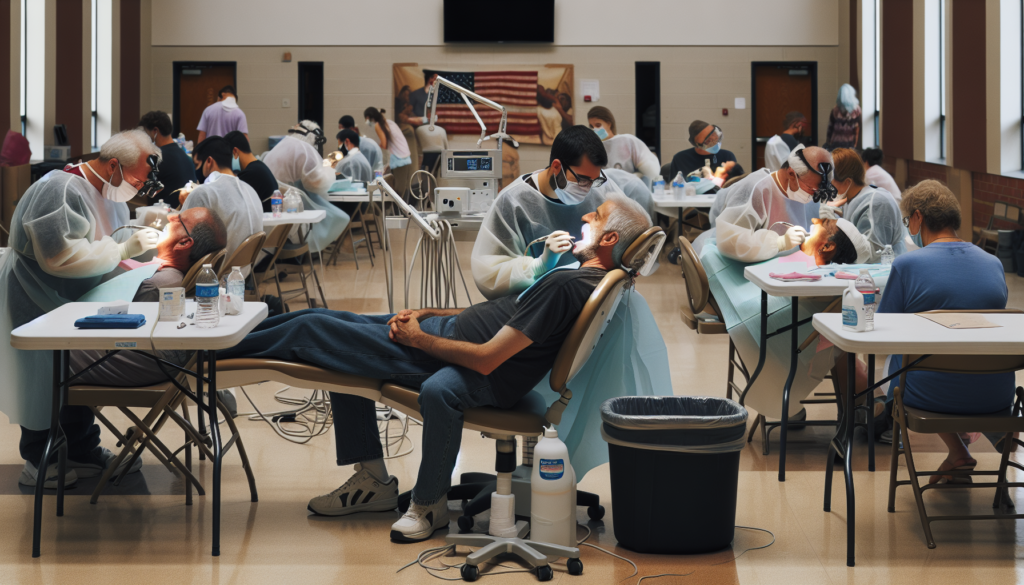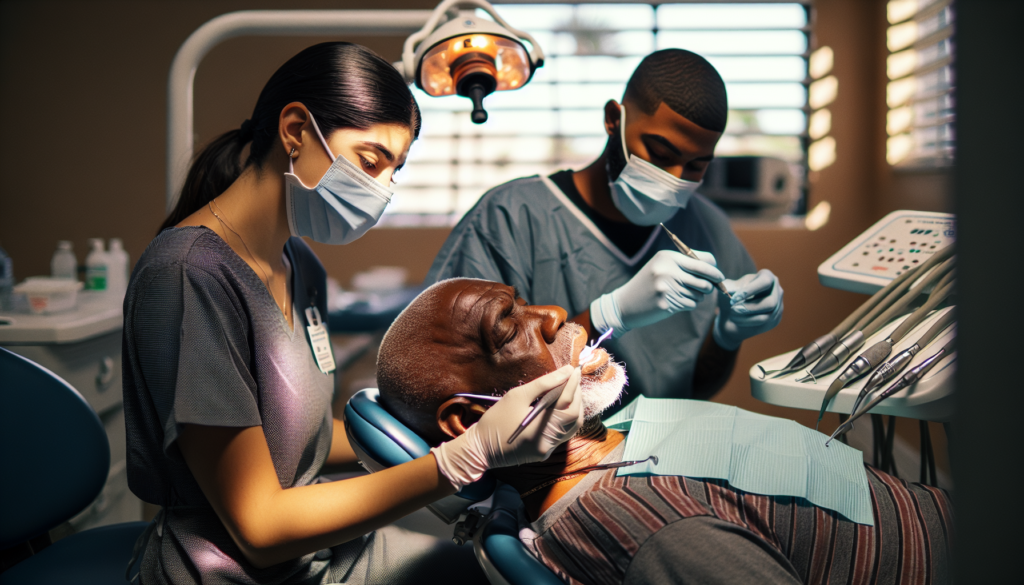Empowering Smiles Through Volunteerism for Migrant Children’s Oral Health
Discover how acts of generosity can transform communities and lives. Just as good habits shape our daily actions, compassionate volunteerism shapes a brighter, healthier world—one smile at a time.
The Power of a Smile and the Need for Oral Health Equity
A smile is a universal language of kindness, connection, and confidence. Yet for many migrant children, dental pain and untreated oral conditions can take away that simple joy. Limited access to care, economic hardships, and mobility between regions often prevent these young individuals from receiving the consistent dental attention they need. Addressing this inequity isn’t just about oral health—it’s a matter of dignity, development, and opportunity.
Dental volunteerism is emerging as a transformative force in bridging this gap. Across the globe, volunteer-driven dental programs are reaching families who would otherwise go unseen. Through compassion, expertise, and teamwork, these programs are restoring both smiles and hope.
Understanding the Oral Health Challenges Among Migrant Children
Migrant children often face a combination of barriers that make accessing dental services complicated. Social and economic instability, language differences, and lack of transportation all contribute to the issue. Many families prioritize immediate survival needs such as shelter and food, leaving oral care as an unaffordable luxury.
- Economic barriers make routine check-ups and treatments unattainable.
- Geographic isolation in rural or temporary housing reduces access to clinics.
- Cultural and informational challenges limit understanding of preventive care.
Unchecked oral problems can impede a child’s nutrition, school performance, and self-esteem. Studies continue to show that poor oral health correlates with missed school days and overall health risks. Tackling these disparities early ensures children can grow, learn, and thrive without preventable dental pain.
Dental Volunteerism: Bridging the Gap in Care Access
Volunteerism in dentistry plays an essential role in filling the void for underserved populations. From dental students to licensed hygienists and dentists, these professionals bring their skills to mobile clinics, local shelters, and community outreach programs to make care accessible.
- Mobile dental clinics travel directly to migrant communities, providing free exams, cleanings, and treatments.
- Pop-up outreach events unite local health departments, nonprofits, and dental schools to deliver coordinated support.
- Community partnerships sustain long-term oral health education alongside emergency relief care.
By treating urgent dental needs and offering prevention education, these volunteer efforts not only alleviate suffering but also empower families to maintain lifelong oral wellness.
Empowering Communities Through Education and Preventive Care
The most sustainable change happens through knowledge. Education-based volunteer initiatives teach both parents and children about proper oral hygiene and nutrition. Preventive programs help families form new habits that reduce the frequency of cavities and gum disease.
- Interactive workshops where children learn correct brushing and flossing techniques.
- Nutrition classes for parents that emphasize reducing sugary drinks and snacks.
- Distribution of oral care kits with toothbrushes, toothpaste, and educational pamphlets in families’ native languages.
When caregivers are involved and equipped with the right knowledge, the impact multiplies across generations. Communities not only experience immediate improvement in oral health but also develop a collective commitment to prevention.
Collaboration and Collective Impact: Public Health Partnerships That Work
Volunteerism flows most effectively when aligned with broader public health strategies. Partnerships between dental schools, non-governmental organizations (NGOs), and local public health departments amplify results and sustainability. Collaborative models leverage existing infrastructure, ensuring outreach programs remain consistent even after volunteer events conclude.
Public health partnerships also help with data collection, funding, and follow-up programs. They serve as a foundation for developing local workforce capacity—training community health workers to continue basic dental screening and education efforts year-round.
Inspiring Stories: How Volunteer Dental Professionals Are Transforming Lives
Behind every successful dental outreach event is a team of professionals committed to compassion and service. Many volunteers describe their experiences as transformative, both professionally and personally. While they provide essential care, they also form deep, human connections with families whose gratitude reminds them why they entered healthcare in the first place.
For instance, volunteers have recounted the joy of seeing a child smile pain-free for the first time in years after a simple filling or cleaning. These small improvements unite communities and reaffirm that oral health care is a fundamental human right, not a privilege.
How to Get Involved: Opportunities for Dental Professionals and the Public
Volunteerism is not limited to dentists and hygienists; anyone can play a role in supporting equitable oral health. From offering administrative help at events to donating supplies or funds, the public can contribute meaningfully. Dental professionals, meanwhile, can explore numerous local and international programs tailored to their area of expertise.
- Dental professionals can partner with established NGOs or community health centers.
- Dental students may participate in supervised mission trips to gain hands-on experience.
- Non-dental volunteers can help with logistics, translation, and education campaigns.
- Donors and sponsors provide financial support or essential supplies for outreach events.
To start, interested professionals can reach out to national dental associations or local health organizations that promote dental outreach. Even a few hours a month can make a measurable difference in a child’s life.
The Lasting Impact: Brighter, Healthier Smiles for the Future
The goal of dental volunteerism extends far beyond a single visit—it fosters a culture of care. Improved oral health contributes to stronger communities, healthier children, and future adults who value wellness and self-care. The ripple effect of volunteer initiatives ensures that good health habits, compassion, and awareness endure across generations.
When we invest our time and talents in others, we create long-term transformation. Empowering smiles becomes a reflection of empowering humanity itself—a connection that reminds us that health equity benefits everyone.
Conclusion: Compassion in Action—Transforming Oral Health One Child at a Time
Volunteer dental programs teach us that compassion and service are among the strongest tools for change. Each act of kindness—each restored smile—represents progress toward a world where every child, regardless of background, has the chance to live pain-free and confident. When volunteers join hands with communities, oral health becomes not just a service but a shared mission of humanity.
Take the next step toward meaningful change. Learn how disciplined compassion, like the principles found in The Habit Method, can help create lasting habits that transform both lives and communities.
Frequently Asked Questions
- Why do migrant children need specialized dental outreach programs? Migrant families often experience unstable living conditions and limited access to consistent healthcare. Outreach programs provide care directly to them, ensuring essential oral health services reach everyone.
- What types of services do volunteer dental teams typically offer? Services can include preventive cleanings, examinations, fillings, extractions, sealants, fluoride treatments, and oral hygiene education.
- Can non-dental professionals participate in volunteer dental programs? Absolutely. Volunteers are needed for organization, translation, education, fundraising, and logistical tasks that keep outreach events running smoothly.
- How does dental volunteerism impact the broader community? Healthier children lead to improved school performance and community well-being. Outreach events foster unity and encourage long-term self-care habits that support public health goals.
- Where can dental professionals find volunteer opportunities? Organizations such as the American Dental Association’s Give Kids A Smile, local dental societies, and international NGOs regularly list volunteer programs focused on underserved groups and migrant populations.
Post Disclaimer
DentalUp is for educational purposes only and cannot accept personal dental information such as x-rays, photos, or treatment details. See full disclaimer here.





